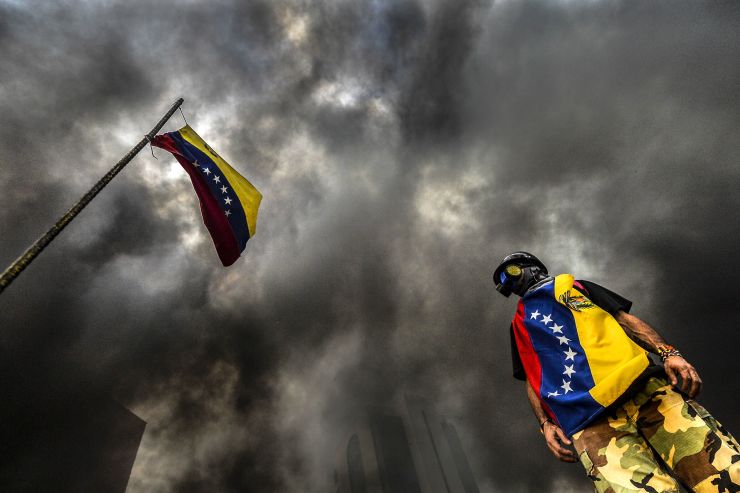
A nationwide power failure in crisis-stricken Venezuela could trigger “serious disruption” to the oil market, the International Energy Agency (IEA) warned on Friday, but OPEC kingpin Saudi Arabia should have the means to offset any further production woes in Caracas.
The IEA report comes at a time when Venezuela, home to the world’s biggest oil reserves, is in the midst of the Western Hemisphere’s worst humanitarian crisis in recent memory.
“The electricity crisis in Venezuela has paralysed most of the country for significant periods of time, ” the Paris-based group said in its closely-watched report on Friday.
“Although there are signs that the situation is improving, the degradation of the power system is such that we cannot be sure if the fixes are durable… During the past week, industry operations were seriously disrupted and ongoing losses on a significant scale could present a challenge to the market.”
A failure at the Guri hydropower plant last Thursday plunged most of the South American country into darkness for days.
The outage crippled the OPEC member country’s oil exports and left millions of citizens struggling to find food and water.
Power was restored to much of Venezuela on Tuesday, but many areas in the oil-rich, but cash-poor, country remain without electricity. It is widely expected that normal services may not resume for weeks — or possibly months.
Venezuela’s domestic electricity supply is largely dependent on its vast hydroelectric infrastructure, rather than its oil reserves.
However, rolling blackouts and water shortages have become a near daily occurrence in recent years, after a sustained period of economic mismanagement.
Means of avoiding disruption ‘theoretically at hand’
Until recently, the IEA said Venezuela’s oil production had stabilized at around 1.2 million barrels per day (b/d). That is also the size of the output cuts agreed by OPEC countries and some non-OPEC producers.
The IEA added that, due to the cuts, OPEC members were sitting on approximately 2.8 million b/d of effective spare production capacity, with de-facto leader Saudi Arabia holding two-thirds of it.
“Much of this spare capacity is composed of crude oil similar in quality to Venezuela’s exports,” the group said.
“Therefore, in the event of a major loss of supply from Venezuela, the potential means of avoiding serious disruption to the oil market is theoretically at hand.”
International benchmark Brent crude traded at around $67.43 Friday morning, up 0.3 percent, while U.S. West Texas Intermediate (WTI) stood at $58.76, around 0.25 percent higher.
Brent crude has fallen more than 21 percent since climbing to a peak of $86.29 in early October last year, while WTI is down around 23 percent over the same period.
